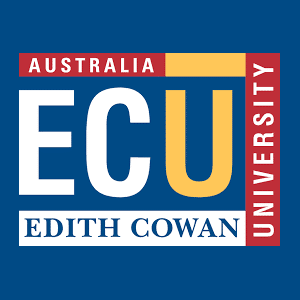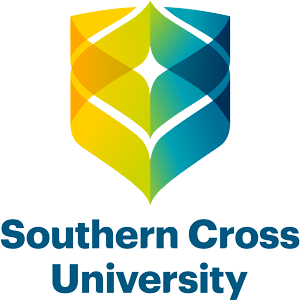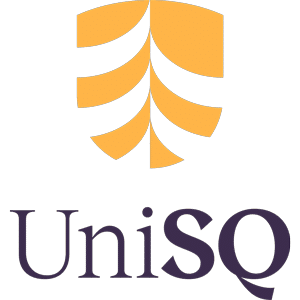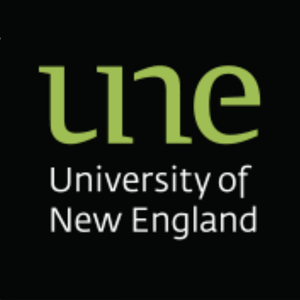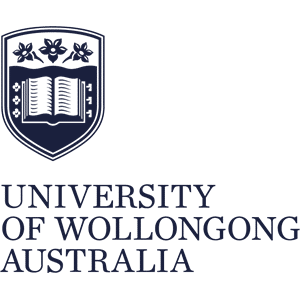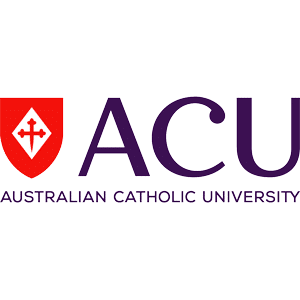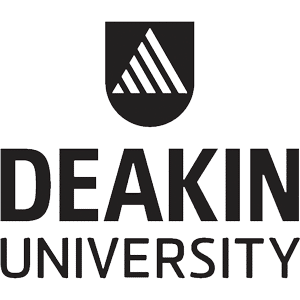If you're a teacher or educator, you know the value of professional development.

Advance your career with a 100% online Master's in Education. An M.Ed. gives you the skills and credentials to take on bigger roles. Graduates are skilled educators who do well in school teaching, administration and workplace training.
A Masters in Education online is a program of 8-12 subjects that you can complete in 16-24 months of part-time study. The degree is a career development opportunity for professionals already involved in education, including current schoolteachers. Choose your preferred specialisation.
ECU - Master of Education (Early Childhood Education)
The Master of Education (Early Childhood Education) from Edith Cowan University is an accelerated, 100% online course for already qualified teachers. The 8-subject program prepares you to be an outstanding leader and expert in this field. Accelerated learning is available, meaning you can study part-time and finish inside 16 months. The degree covers topics such as language and literacy, the theory and practice of leading in early years, contemporary issues, and leading family and community in the early years (0-8).
ECU - Master of Education (Leading Education)
For current and future school leaders, Edith Cowan University has an education master's degree with a Leading Education specialisation. The 8-subject program explores how to lead staff, engage the community, improve learning outcomes, and lead under challenging circumstances. You can earn the online degree in 16 months of part-time study, completing a unit every 2 months. The university is a specialist in this field, starting as a teachers' college in 1902. ECU receives excellent ratings for teaching quality in graduate surveys.
SCU Online - Master of Education (Educational Leadership)
Southern Cross University ticks all the boxes for a well-rounded education degree. Students do one subject unit at a time, each taking around 7 weeks part-time. There's a short break before you move to the next one. SCU Online's affordable program is delivered on a modern platform. The Educational Leadership specialisation strengthens your administration and management skills. Topics include human resource management, accounting for managers, evaluation for improved teaching and learning, and positive leadership.
SCU Online - M.Ed. (Educational Inclusion and Diversity)
You can study Educational Inclusion and Diversity within Southern Cross University's education master's. The 100% online course helps education graduates to positively impact Australia's schooling system. Students gain a greater appreciation of diversity in the student population, learn to promote the social and emotional wellbeing of students, cultivate a strategy to deliver inclusive education, and explore how to use digital technologies to support student participation. The affordable 8-subject degree can be completed in 16 months of part-time learning.
SCU Online - Master of Education (Educational Wellbeing)
Become an expert on maximising student wellbeing with the Master of Education (Educational Wellbeing) from Southern Cross University. Four of the eight subjects in the specialist program are about the welfare of students. You 'll learn to appreciate diversity among students, including with respect to special needs, language barriers and cultural differences. Explore how to support students in difficulty, provide leadership on wellbeing issues, and develop social and emotional health strategies. The 100% online degree is among the most affordable in Australia.
UniSQ - Master of Education (Guidance and Counselling)
The Master of Education (Guidance and Counselling) from the University of Southern Queensland is for school teachers wanting to work as a guidance officer, school counsellor or other education leader. Learn how to advise young people and work with stakeholders to achieve positive education, career and life outcomes. The 12-subject program explores individual assessment, communication and consultation, career development, child abuse prevention, and emotional and behavioural problems. Commonwealth Supported Places are available to reduce tuition fees.
UNE - Master of Education (Digital Learning)
The Master of Education (Digital Learning) from the University of New England explores e-learning topics. Examples are the use of technology in education, inclusion and access in online spaces, developing learning communities, learning analytics, and designing effective learning experiences with technology. Full and part-time study modes are available, and most participants study online. You'll be able to fit study around work and other commitments. The degree develops critical thinking, problem-solving, and communication skills.
UOW - Master of Education (Special Education)
The Master of Education (Special Education) at the University of Wollongong offers targeted training for primary and secondary educators in special needs. The 12-subject program includes four core subjects, four special education-focused subjects, and four electives from any educational area. It is available online and at the Wollongong campus. Practical placements are included to enhance real-world skills. Topics include autism, behavioural management, and learning difficulties, alongside electives in educational leadership and technology integration.
ACU - Master of Religious Education
The online Master of Religious Education from the Australian Catholic University consists of 12 subjects. Choose subjects to meet your learning and career goals, with units broadly grouped into religious education, theological studies, research and related courses. It's designed to meet the needs of educators in religious settings at school, parish, or diocesan levels. Professional recognition of your qualification may depend on the requirements of the locale where you wish to teach. Applicants are advised to check with the relevant Catholic or state education office.
Deakin - Master of Teaching
To qualify to be a teacher, Deakin University offers an online Master of Teaching program. Specialisations include early childhood, primary, and secondary education. You can also pursue a dual qualification, enabling you to teach in both primary and secondary classrooms. The two-year degrees comprise coursework and, towards the end, supervised professional placements. Admission requirements include holding a university degree and meeting criteria assessed by a selection tool for non-academic attributes.
Types of Education Masters Degrees
To further your career, different types of Master of Education degrees are available. From teaching secondary students to working with young children, leading in education, or supporting kids with special needs, there's a degree to achieve your goals.
If you're not a qualified teacher but want to become one, you can do a Master of Teaching (MTeach). A teaching degree is different from most of the education degrees we've explored, with M.Ed. courses meant for current teachers and other education professionals.
In Australia, the two common graduate degrees that qualify someone to teach in classrooms are a Master of Teaching (Primary) and Master of Teaching (Secondary). To be eligible, you typically need a bachelor's degree in any discipline.
Digital learning is obviously a big part of the future of education. Studying for an advanced degree with a specialisation in this field has to be a good investment.
You'll gain knowledge and skills that can be used not only in teaching, but also in research, program development and leadership roles. Students learn about instruction methods, how to best use new technologies, and the insights to be gained from learning analytics.
A Master of Early Childhood Education is a professional development course for graduates with practical teaching experience.
Particpants explore how to optimally work with young children aged from 0 to 8 years. The degree opens up career opportunities in primary and early childhood settings.
Masters of Educational Leadership programs prepare you to lead and manage in educational settings, such as early learning centres, schools, colleges, universities or workplaces.
The postgrad degree combines your existing professional experience with theory and applied instruction. You should graduate as a more confident and capable leader.
To work as a guidance officer, guidance counsellor or similar in Australian schools, you need to be an appropriately qualified teacher.
Gain the counselling skills and qualifications you need with a Masters in Guidance and Counselling.
Inclusive education is a specialisation you may want to consider as part of a Masters in Education. You learn how to facilitate access and full participation of students in learning, overcoming potential challenges due to varying backgrounds and abilities.
Graduates can apply their skills in the classroom and across the broader school community.
If you have a keen interest in religious education, you can cultivate that into subject expertise with a Master of Religious Education. To be admitted, you should be a qualified school teacher or otherwise have a strong educational background.
Graduates may work in school teaching, education administration or research, curriculum development, or policy making.
A Master of Special Education helps classroom teachers build skills and knowledge to support kids with special needs.
Learning to overcome learning challenges is useful training for any classroom teacher, whether you have one special needs student in your class or are a specialist in this field.
The wellbeing of students and positive mental health is a field you can major in as part of a Masters of Education in Australia. A Student Wellbeing specialisation is useful for any teacher and for other school staff, including those in designated wellbeing roles.
Recognising that a school is much more than just a place of learning, participants explore how to enhance the social and emotional welfare of pupils.
Why These Degrees are Worthwhile
A master's degree in education can provide a number of benefits for existing teachers in Australia. Some of the potential advantages include:
- increased knowledge and understanding of pedagogical theories and best practices;
- the ability to specialise in a particular subject or area of education;
- potential career advancement opportunities, such as becoming a lead teacher or education administrator; and
- higher salaries.
Overall, an education master degree can be a valuable investment for someone looking to advance their teaching career and improve their effectiveness in the classroom.
Career Opportunities

Today's postgraduate courses for teachers target skills and knowledge, including leadership strategies, that are directly relevant to education delivery and management. Online learning has a student-first approach. You can balance M.Ed. study with other life commitments.
By completing a program, you benefit by refreshing and enhancing existing skills. You also acquire knowledge and skills in new areas. And, after re-examining the methods and goals of instruction, your motivation for teaching may grow.
Job opportunities depend on your career path and goals. Some of the senior roles taken by graduates include lead teacher, principal, education consultant, education researcher, program manager, learning designer, corporate learning manager, and head of learning and development.
Related: What Can You Do with a Masters in Education?
Course Duration
How long does it take to complete a Master of Education? The standard length for online programs is 16 months part-time. This involves completing one of eight subjects every two months. A 12-subject program will take longer, requiring 24 months of part-time study.
Is there a 1-year course? School teachers and other educators often hope to earn a Master of Education online in just 1 year. The only way to do this is to study full time, which is impractical for most people. However, you can complete an 8-subject master's over two semesters (one academic year) with a full-time load of four subjects at a time.
What You'll Study (Course Structure)
For qualified teachers, an education masters normally consists of 8 subjects. To specialise in a given field, you may need to complete the program's core subjects plus the electives in your specialist study stream.
At Edith Cowan University, the programs consist of four core and four specialist subjects.
Core
- Leading Education in a Global Context
- Assessment in Education: Policies, Pedagogy and Equity
- Inquiry-Based Practice
- Advanced Seminar
Early Childhood specialisation
- Leading Early Childhood Pedagogy and Practice (0-8 years)
- Leading Family and Community in the Early Years (0-8 years)
- Contemporary Issues in ECE
- Language and Literacy in EC
Leading Education specialisation
- Leading Under Challenging Circumstances
- Leading for Improvement
- Leading Staff
- Leading Community Engagement
Students complete 4 core units and 4 electives. Choose electives across any specialisation for a generalist degree. To specialise in Leadership, Wellbeing, or Inclusion and Diversity, you need to complete specific electives.
Core subjects
- Contemporary Educational Leadership
- Contemporary Educational Contexts
- Leading Professional Learning
- Educational Investigation
Electives
- Accounting for Managers
- Human Resource Management
- The Positive Leader
- Evaluation for Improved Teaching and Learning
- Supporting Students in Difficult Times
- Valuing Diversity
- Educational Leadership and Wellbeing
- Enhancing Student Wellbeing
What Will I Learn?
Learning outcomes depend on the program and your chosen area of specialisation. M.Ed. programmes are a blend of core subjects and electives, with groups of electives forming majors. Broadly, however, you can expect to achieve the following.
Specialist knowledge
You'll gain specialist knowledge in your chosen field of specialisation. That could be in areas such as school counselling, leadership, cultural awareness, enhancing student welfare, and strategies for organisational learning.
Lifelong learning and research skills
Almost all programs make research and self-directed learning a priority in the curriculum. Expect to explore topics such as inquiry-based practice, educational investigation, professional learning and practice, and learning in the digital age.
Confidence and leadership
A Master of Education degree is an impressive qualification that will expand your opportunities and give you the confidence to strive for more out of your career. As well, you may hone your management and leadership style by formally studying leadership principles and methods.
Entry Requirements
Entry requirements vary by course type. For courses aimed at qualified teachers, education credentials equal or comparable to a 4-year Bachelor of Education may be required. Other programs have alternative entry paths based on professional experience.
Is it essential to have a background in education for a M.Ed.? Many M.Ed. programs require an education background because they focus on teaching, schooling, or education management. However, some programs may be also be aimed at workplace trainers and don't require a specific background.
Course admission requirements are a Bachelor of Education OR a bachelor's degree in any other field plus a Graduate Diploma of Education or Master of Teaching. You also require 2 years experience in an educational setting or organisation.
Special entry may be considered for students with a bachelor degree in another area or a 3-year trained teacher, both supported by extensive professional experience.
You need a four-year Bachelor of Education degree or equivalent OR a bachelor degree and a 4th-year level teaching qualification or equivalent OR a 3-year bachelor degree in Teaching and an education-specific graduate certificate.
Graduate Certificate in Education

Anyone considering a Master's in Education should also look at Graduate Certificates in Education. These relatively short courses, four subjects long, typically form part of the broader curriculum.
Graduate Certificates allow for highly targeted study in your area of interest.
Starting with a Graduate Certificate lets you test the waters without a full commitment to a longer program. Should you decide to continue, the credits from the certificate normally count towards a masters degree.
